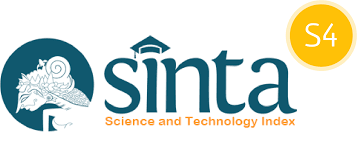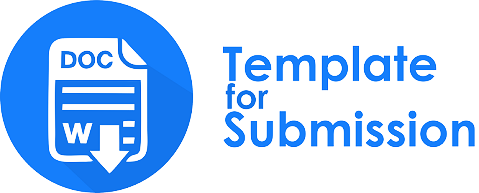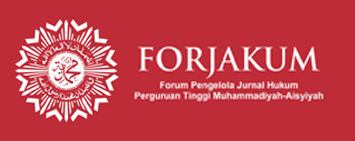The Urgency of Protecting Netizen in Freedom of Speech on Social Media
DOI:
https://doi.org/10.18196/mls.v2i1.11480Keywords:
Freedom of Speech, Netizen, The Law of Information and Electronic TransactionAbstract
Freedom of speech is a part of fundamental rights to every people. Nowadays, freedom of speech could not felt widely to all people. Freedom of speech developed until Universal Declaration of Human Rights and International Covenant on Civil and Political Rights assure and restrict freedom of speech. In Indonesia, since the rise of The Law of Information and Electronic Transaction, the restriction of freedom of speech become biased, many words in social media are presumably attack others. Netizen feels security to speak up is limited, such Ruslan Buton who critics and record about President Jokowi deemed as a hoax and hate speech. Even though some articles in 1945 Constitution have already protect and guarantee all people to bear the right to speak. The limitations of Freedom of speech in The Law of Information and Electronic Transaction emerge multi interpretation which the right to speak have not been correspond with the values in 1945 Constitution. To harmonize freedom of speech in Indonesia, it needs cooperation among government and people to eradicate ambiguity and fear in which already happen.By using juridical-normative method, the research aims to understand the condition of freedom of speech in Indonesia, and to understand the protection of netizen in using social mediaReferences
Books:
John Palfrey. (2010). Four Phases of Internet Regulation. Massachusetts, United States of America: Harvard University.
Martinus Sardi. (2014). Menuju Masyarakat Berwawasan Hak Asasi Manusia.Yogyakarta: Center for Religion and Peace Studies.
Mike McConville & Wing Hong Chui. (2012). Research Methods for Law. Edinburgh, United Kingdom: Edinburgh University Press.
Patrick Philips and friends. (2015).Oxford Advanced Learner’s Dictionary 8th Edition, Oxford, United Kingdom: Oxford University Press,
Peter Mahmud Marzuki. (2011). Penelitian Hukum, Jakarta: Kencana Prenada Media Group.
Soerjono Soekanto & Sri Mamudji. (2007). Penelitian Hukum Normatif: Suatu Tinjauan SIngkat, Jakarta: Rajawali.
Van Kan and J.H. Beekhuis. (1972). Pengantar Ilmu Hukum. Jakarta: Pembangunan.
Journals:
Ibnu Nadzir, & others. (2019). Hoax and Misinformation in Indonesia: Insights from a Nationwide Survey. ISEAS Yusof Ishak Institute. Perspective, 1(92).
Lewandowsky, S, & others. (2012). Misinformation and Its Correction: Continued Influence and Successful Debiasing. Psychological Science in the Public Interest, 13(3).
Margaretha Wewerinke-Singh. (2019). Remedies for Human Rights Violations Caused by Climate Change. Climate Law Journal, 9(3).
Philip Eldridge. (2002). Human Rights in Post-Soeharto Indonesia. The Brown Journal of World Affairs, 9(1).
Sheila Kasperek & Bethani Messersmith. (2015) The Library That Cried Wolf: Outcomes of a Banned Book Hoax on Facebook. Pennsylvania Libraries: Research & Practice, 3(1).
Thesis:
Tareq Muhammad Aziz Elven. (2019). Protection of Academic Freedom for Scholars in Indonesia under the Universal Declaration of Human Rights (Undergraduate Thesis). Universitas Muhammadiyah Yogyakarta, Yogyakarta, Indonesia.
Regulations:
Constitution
The Law Number 11 Year 2008 about Information and Electronic Transaction (ITE’s Law)
The Law Number 1 of 1946 about Criminal Law Regulations
Criminal Code
Universal Declaration of Human Rights
International Covenant on Civil and Political Rights
Website:
Aji Medan. (2015). Negara Harus Menjamin Kebebasan Berekspresi Sebagai Hak Konstitusional, The Alliance of Independent Journalist. Accessed on 1st November 2019, https://medan.aji.or.id/negara-harus-menjamin-kebebasan-berekspresi-sebagai-hak-konstitusional/
Amnesty International Indonesia. (2020). Peretasan Tempo dan Pandu Riono Serangan Terhadap Kebebasan Berekspresi. Accessed on 4th September 2020, https://www.amnesty.id/peretasan-tempo-dan-pandu-riono-serangan-terhadap-kebebasan-berekspresi/,
Aulia Adam. (2020). Keganjilan Dalam Pembobolan Whatsapp dan Penangkapan Ravio Patra. Accessed on 6th September 2020, https://tirto.id/keganjilan-dalam-pembobolan-whatsapp-dan-penangkapan-ravio-patra-flkF.
Bulletin of Indonesia Internet Service Provider Association (APJII) 68th Edition. (2018) Ikhtiar Percepatan Pemerataan Akses Internet di Tanah Air. Accessed on 7th May 2020, https://apjii.or.id/content/read/104/487/BULETIN-APJII-EDISI-68---Agustus-2020.
Felix Nathaniel. (2019). Hoaks Kian Marak, tapi Kebebasan Berpendapat Lemah di Indonesia. Accessed on 12th May 2020 https://tirto.id/hoaks-kian-marak-tapi-kebebasan-berpendapat-lemah-di-indonesia-elQd.
Frank La Rue. (2011). Report of the Special Rapporteur on the Promotion and Protection of the right to freedom of opinion and expression, General Assembly, United Nations. Accessed on 25th August 2020, https://www2.ohchr.org/english/bodies/hrcouncil/docs/17session/A.HRC.17.27_en.pdf.
Imam Hamdi. (2020).Fakta Kasus Ruslan Buton, Wakil Ketua MPR Kritik Polisi. Accessed on 3rd September, https://metro.tempo.co/read/1354830/fakta-kasus-ruslan-buton-wakil-ketua-mpr-kritik-polisi?page_num=2.
Institute for Criminal Justice Reform. (2012). Putusan PK Prita Mulyasari: Catatan Bersejarah Kehidupan Kebebasan Bereskpresi di Indonesia. Accessed on 12th July 2020, https://icjr.or.id/putusan-pk-prita-mulyasari-catatan-bersejarah-kehidupan-kebebasan-berekspresi-di-indonesia/.
Laily Rahmawati. (2020). Sidang Dakwaan Kasus Hoaks Ruslan Buton Digelar di PN Jaksel. Accesed on 3rd September 2020, https://tirto.id/sidang-dakwaan-kasus-hoaks-ruslan-buton-digelar-di-pn-jaksel-fXA5.
Mela Arnani. (2019). Mereka yang Dilaporkan atas Dugaan Langgar UU ITE Karena Cuitan Soal Wiranto. Accessed on October 14th 2019, https://www.kompas.com/tren/read/2019/10/12/160000765/mereka-yang-dilaporkan-atas-dugaan-langgar-uu-ite-karena-cuitan-soal?page=all
Nanda. (2019). Mahfud MD Sebut UU ITE DIundangkan di Era Pemerintahan SBY: Kalau Sudah Tak Perlu, Bisa DIcabut. Accessed on 14th July 2020 https://kaltim.tribunnews.com/2019/02/27/mahfud-md-sebut-uu-ite-diundangkan-di-era-pemerintahan-sby-kalau-sudah-tak-perlu-bisa-dicabut.
SAFEnet Annual Report. (2018). Jalan Terjal Memperjuangkan Hak-Hak Digital. Accessed on 25th August 2020, https://safenet.or.id/wp-content/uploads/2019/06/Laporan-Tahunan-SAFEnet-2018.pdf.
Safenet voice. (2018). Pengekangan Kebebasan Ekspresi Online di Asia Tenggara. Accessed on 25th August 2020, https://id.safenet.or.id/2018/06/pengekangan-kebebasan-ekspresi-online-di-asia-tenggara/.
Siti Harlina. (2020). Video Hoax Rombongan TKA China Corona Masuk Kendari Diamankan. Accessed on 3rd September 2020, https://news.detik.com/berita/d-4940599/pembuat-video-hoax-rombongan-tka-china-corona-masuk-kendari-diamankan.
Universal Declaration of Human Rights. Accessed on 18th August 2020, https://www.ohchr.org/EN/UDHR/Documents/UDHR_Translations/eng.pdf.
Zabur Karoro. (2019). Blokir Internet Di Papua dan Papua Barat ‘Merugikan Perekonomian Daerah’ dan ‘Memicu Masalah. Accessed on 3rd September 2020, https://www.bbc.com/indonesia/indonesia-49618624.
Downloads
Published
Issue
Section
License
Copyright
Authors who publish papers in this journal agree to the following terms:
Authors retain copyright. Authors are permitted to copy and redistribute the journal's published version of the work non-commercially (e.g., post it to an institutional repository or publish it in a book)
Authors are permitted and encouraged to post their work online (e.g., in institutional repositories or on their website) prior to and during the submission process, as it can lead to productive exchanges, as well as earlier and greater citation of published work (See The Effect of Open Access).
This journal is using Attribution-NonCommercial-ShareAlike 4.0 International. You are free to:
- Share — copy and redistribute the material in any medium or format
- Adapt — remix, transform, and build upon the material
The licensor cannot revoke these freedoms as long as you follow the license terms, which include the following:
- Attribution — You must give appropriate credit, provide a link to the license, and indicate if changes were made. You may do so in any reasonable manner, but not in any way that suggests the licensor endorses you or your use.
- NonCommercial — You may not use the material for commercial purposes.
- ShareAlike — If you remix, transform, or build upon the material, you must distribute your contributions under the same license as the original.
- No additional restrictions — You may not apply legal terms or technological measures that legally restrict others from doing anything the license permits.
Creative Commons Attribution-NonCommercial-ShareAlike (CC BY-NC-SA)

This work is licensed under a Creative Commons Attribution-NonCommercial-ShareAlike 4.0 International License.



